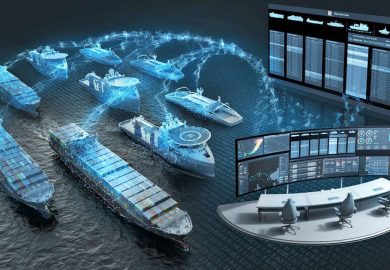-
View Profile
Senior Consultant
Key Skills for Top Talent in Maritime Data
Digital Maritime
Senior Consultant

The maritime industry is evolving rapidly, with data and analytics playing a crucial role in navigating this complex and highly regulated landscape. As maritime operations become increasingly data-driven, the demand for skilled professionals who can interpret and leverage this data effectively has never been higher.
For companies offering data and analytics solutions, understanding the unique demands of maritime data is key not only to attracting and retaining top talent but also to driving innovation and maintaining a competitive edge in the industry. Investing in the right talent can directly impact operational efficiency, safety, and overall business success in this complex sector.
Maritime data is inherently complex, encompassing a wide array of data points such as vessel movements, weather patterns, fuel prices, and trade regulations.
According to a report by the International Maritime Organization (IMO), the industry generates an estimated 100–120 million data points daily, underscoring the scale and complexity involved. Analysts in this space need to be proficient in handling and synthesising these intricate data sets to deliver actionable insights.
The integration of Big Data techniques, such as predictive analytics and machine learning, is becoming increasingly important.
As Marine Digital highlights, these advanced methods can enhance operational efficiency and optimise decision-making by identifying patterns and trends that were previously inaccessible. For hiring managers, this means seeking out talent that not only understands traditional data analytics but is also adept at applying these newer, more sophisticated techniques.
In maritime operations, time is often of the essence.
Whether it’s optimising shipping routes or responding to emergencies, real-time decision-making is critical. Research by Lloyd’s Register indicates that real-time data analytics can reduce operational costs by up to 10% while improving safety and compliance.
Analysts must be equipped to process and analyse data quickly, providing insights that enable swift, informed decisions.
For companies looking to attract top talent, it’s essential to emphasise the high-impact nature of this work. Analysts in the maritime industry are not just crunching numbers; they’re directly influencing the operational effectiveness of entire fleets.
Moreover, integrating real-time analytics with Big Data allows for predictive insights, enabling proactive management of potential risks and optimising fleet performance, making these roles even more critical and attractive.
Effective application of data analytics in the maritime industry requires more than just technical expertise; it demands a deep understanding of maritime operations, regulations, and industry trends.
A study by the Baltic and International Maritime Council (BIMCO) highlights that over 70% of successful data-driven initiatives in maritime were led by teams with significant domain expertise.
When attracting talent, it’s vital to look for candidates who not only excel in data analytics but also possess a strong grasp of the maritime sector.
This combination of skills ensures that data-driven solutions are both technically sound and practically applicable. Additionally, as predictive analytics and machine learning become more integrated into maritime operations, domain knowledge will be increasingly crucial for effectively applying these technologies.
To attract the best talent, companies must highlight the significant impact that maritime data analytics can have on the industry. Emphasising the potential to improve operational efficiency, reduce environmental impact, and enhance safety can resonate strongly with prospective candidates.
For instance, the Port of Rotterdam‘s digitisation efforts, which include real-time data analytics, have led to a 20% reduction in waiting times for vessels, showcasing the tangible benefits of maritime data analytics.
Sharing such success stories can demonstrate the real-world benefits of maritime data analytics, making the role more attractive to top-tier talent. Leveraging these examples in recruitment marketing can make the opportunity more compelling for candidates who are eager to make a difference in the industry.
Creating a work environment that aligns with the needs of the maritime industry is crucial for retaining top talent.
A collaborative culture, where analysts work closely with maritime experts, fosters innovation and drives the development of effective solutions. Providing access to high-quality maritime data, including real-time vessel tracking and market intelligence, empowers analysts to excel in their roles.
Furthermore, encouraging participation in industry events and conferences helps keep your team at the forefront of the latest trends and technologies. For example, involvement in events like the Nor-Shipping or SMM Hamburg exhibitions provides unparalleled insights into the latest advancements in maritime technology and analytics.
Additionally, investing in training programs that focus on the integration of Big Data techniques can further enhance the skill set of your team, ensuring they remain competitive in the rapidly evolving maritime sector.
By understanding the unique challenges and opportunities within maritime data analytics and tailoring your attraction and retention strategies accordingly, you can build a team of skilled analysts who are not only experts in data but also passionate about the maritime industry.
This approach will position your organisation as a leader in maritime data solutions, driving both business success and industry innovation.
The integration of Big Data analytics is not just a trend but a necessity for the modern maritime industry, and having a team that understands both the data and the industry is essential for leveraging this technology to its fullest potential.